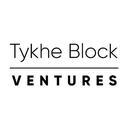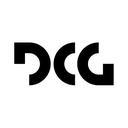
Trust Machines
The year is 1936. Alan Turing, a young graduate student at Princeton, is hard at work on the “Entscheidungsproblem” or “decision problem” that has confounded mathematicians: determining whether a mathematical statement can be proven to be true or false by an algorithm. Turing is successful where others have failed, and he invents the Turing Machine. This marks the beginning of modern computers, which together with the internet that connects them, have changed our world in profound ways since then. The year is 2008. Satoshi Nakamoto, an anonymous developer, is working on a new way to enable secure digital money without the need to trust any centralized entity. Satoshi is successful where others have failed, combining brilliant incentive engineering with known cryptography to create a cryptocurrency, Bitcoin. Today, Bitcoin has already reached a trillion dollars in value. The impact, however, is far greater, as Satoshi has—for the first time—solved the decades-old problem of providing trust without centralization in an open, permissionless setting. Satoshi’s foundation of “trust without centralization” can be used for many applications beyond digital money. Satoshi has pushed us into a new era of computing: from Turing Machines to Trust Machines. Just as the internet transformed communication and the Web transformed access, Bitcoin transforms trust. The implications are likely to be profound. This new era of computing enables new types of applications, and new ways of building existing applications, across many areas of human and societal endeavor. These applications have fundamental properties that were simply not possible to have before: open access without permission; transparent governance (without fear of opaque censorship, corruption, or rent-taking by centralized entities); and a novel, healthy incentive system that creates new business models and value for all. Other blockchains since Bitcoin have taken the lead in becoming natively programmable platforms for applications, rather than natively only being settlement layers and supporting stores of value, like Bitcoin. However, only Bitcoin provides true decentralization of trust, and hence is the only blockchain that actually provides these important properties. Bitcoin is, therefore, by far the best final settlement layer for transactions, and applications of value should perform their final settlement on Bitcoin. Trust Machines extend Bitcoin from being only a passive store of value to being the final settlement layer for a powerful new computational platform, and to both enable and grow the new economy of applications powered by Bitcoin the money and settling on the Bitcoin blockchain.











